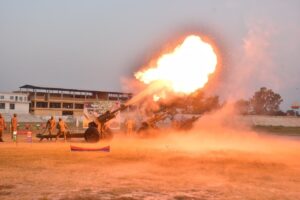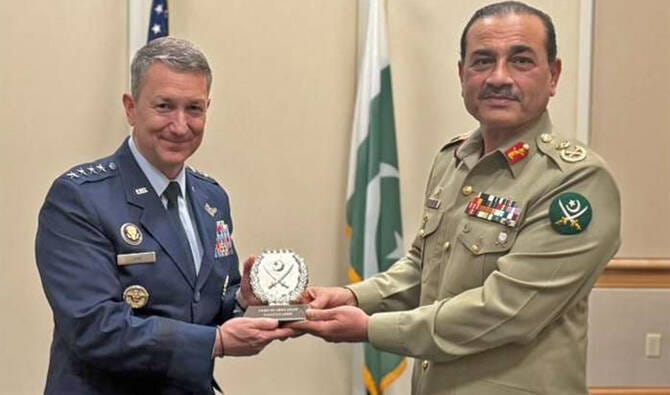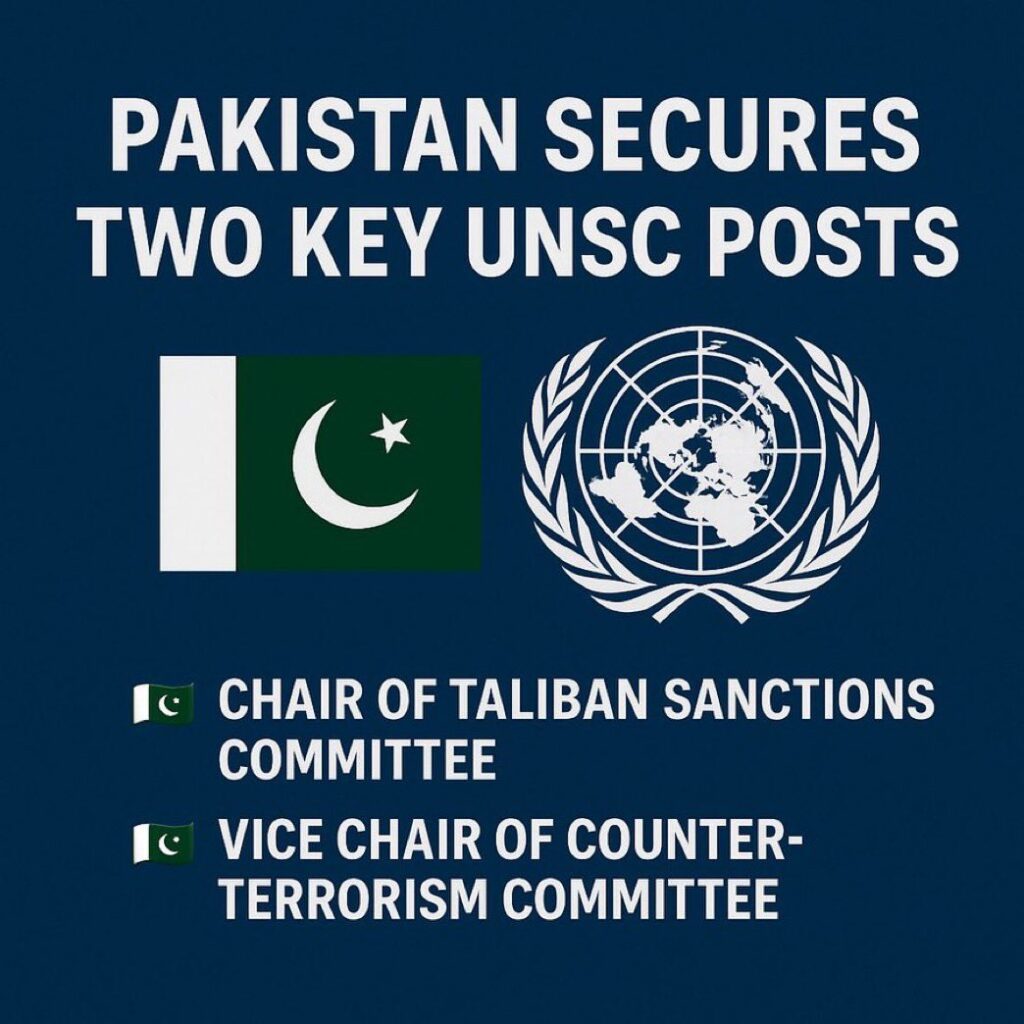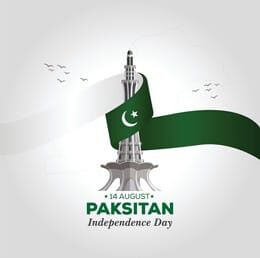By: Aiman Khattak
Independence Days are moments of remembrance, but they are also mirrors. They reflect where we have come from and, just as importantly, where we are now. On this 14 August, Pakistan turns 78 not in the shadow of despair but under the light of revival. The past two years have seen developments that have reshaped the country’s diplomatic, security, and economic landscape in ways that few would have predicted even recently. From recalibrating regional equations with India to restoring trust with the United States, from strengthening counterterrorism efforts to initiating a long-awaited economic turnaround, Pakistan has taken deliberate steps to project stability and responsibility on the world stage.
It began in a high-stakes confrontation with India. In the Marka-e-Haq, Pakistan’s armed forces responded with measured strength and unyielding resolve, delivering a strike that reverberated beyond borders. The discipline of the response exposed Indian miscalculations, while images of our unity and preparedness resonated in diplomatic capitals worldwide. Suddenly, Pakistan’s image shifted from a country besieged by crises to one capable of defending itself with clarity and dignity.

Moreover, the exposure of India’s involvement in sponsoring subversive networks within Pakistan, particularly the linkage of Indian intelligence to violent actors in Balochistan and Khyber Pakhtunkhwa, was handled not merely as a regional grievance but as an international case built on evidence. This approach combining intelligence disclosures with diplomatic engagement allowed Pakistan to draw the world’s attention to the security threats it faces without appearing reactionary.
Central to this shift has been the leadership of Field Marshal COAS General Syed Asim Munir. Since assuming command, he has worked to align military strategy with diplomatic initiatives, ensuring that Pakistan’s narrative abroad reflects its realities at home. His recent visit to Washington was a watershed moment. Not only did the trip reaffirm Pak-US defence cooperation, it also resulted in tangible outcomes: the United States formally designated the Balochistan Liberation Army and the Majeed Brigade as terrorist organizations. This move, long sought by Pakistan, signaled Washington’s recognition of the threats Pakistan has faced for years and marked a decisive moment in counterterrorism collaboration.

It is worth noting that this diplomatic success did not happen in isolation. The groundwork was laid over two years of consistent engagement, intelligence sharing, and confidence-building measures. At a time when Pakistan’s relationship with Washington had been defined by mistrust and misalignment, the change in tone was notable. Under Field Marshal Munir’s guidance, Pakistan positioned itself as a credible security partner rather than a crisis-driven ally. In a geopolitical climate where the United States has recalibrated its South Asia strategy, Pakistan’s ability to secure American support on counterterrorism issues speaks volumes about its improved international standing.
Moreover, this year, the nation achieved another significant diplomatic milestone at the United Nations when it was appointed Vice-Chair of the UN Security Council’s Counter-Terrorism Committee and assumed the Chair of the Taliban Sanctions Committee. These prestigious roles reflect the trust of the international community in Pakistan’s counter-terrorism credentials and reinforce its position as a key player in shaping global security policy. Such recognition underscores that Pakistan’s sacrifices and consistent efforts in combating terrorism are acknowledged beyond its borders, adding another proud chapter to its history as it marks yet another Independence Day.

But beyond the security sphere, Pakistan’s diplomatic rehabilitation has opened doors in economic and trade domains. In 2023, the economy was still reeling from record inflation, a shrinking currency, and a perilous fiscal gap. Yet by mid-2025, the macroeconomic picture has begun to stabilize. The rupee, which had plunged to historic lows, regained relative stability through disciplined fiscal management and external inflows from friendly nations and multilateral institutions. Foreign exchange reserves, once hovering near default levels in 2021, have climbed back to a more sustainable position in 2025. The government’s focus on energy sector reforms, tax base expansion, and export diversification has begun to yield results, with textiles, IT services, and agricultural exports showing consistent growth.
The improved economic climate is not merely a function of technocratic fixes. It is inseparable from the political and diplomatic stability that Pakistan has worked to restore. International investors, once wary of the country’s volatile environment, are now cautiously re-engaging. The reopening of long-delayed talks with the European Union on trade facilitation, and the resumption of certain stalled infrastructure projects with Chinese cooperation under CPEC’s second phase, reflect a renewed sense of economic direction. Pakistan’s ability to navigate relationships with both Washington and Beijing simultaneously has strengthened its bargaining position in global economic forums.
Equally significant is the shift in Pakistan’s global image. For years, the country’s portrayal in international media was dominated by narratives of instability, extremism, and political paralysis. In the past two years, however, Pakistan has been able to project a more balanced identity one that recognizes its challenges but also highlights its resilience and constructive role in regional stability. The hosting of multilateral counterterrorism exercises, humanitarian contributions in regional crises, and proactive participation in climate change dialogues have all contributed to this renewed perception.
This transformation has not been accidental. It has been the result of deliberate policy alignment across state institutions, and at the heart of it is the recognition that Pakistan cannot afford to be reactive to global events it must shape them. Pakistan’s administration emphasis on institutional discipline, narrative control, and sustained engagement with global capitals has set the tone for a more coherent foreign and security policy.
As Pakistan celebrates its 78th year, the occasion carries a dual meaning. It is both a remembrance of a hard-won independence and a reflection on the state’s evolution in the modern era. The trajectory of the past two years suggests that the state has rediscovered its capacity to act with purpose, unity, and strategic patience.

Independence Day is not merely a date on the calendar; it is a reminder of the sacrifices that laid the foundations of the country and of the responsibility to preserve and strengthen it. In 2025, Pakistan stands not as a passive observer of global events but as an active participant, with a clearer voice and a stronger footing. The message to both friends and rivals is that the nation’s resolve is not defined by its past struggles but by its future ambitions.
In the global arena whether in the corridors of Washington, the conference halls of Beijing, or the multilateral platforms of the United Nations Pakistan’s position today is more assured than it has been in years. This is the product of a conscious shift towards stability, credibility, and proactive engagement. As the green and white flag rises once again on August 14, it symbolizes not only the resilience of the nation but also its determination to turn the page towards a new chapter one where the struggles of yesterday give way to the strengths of tomorrow.

